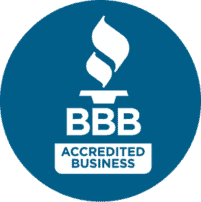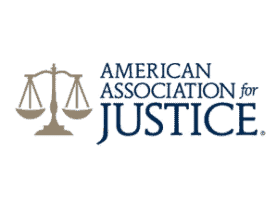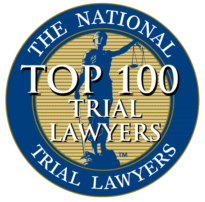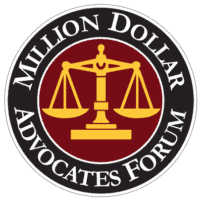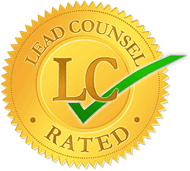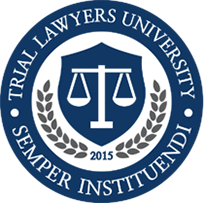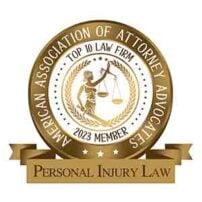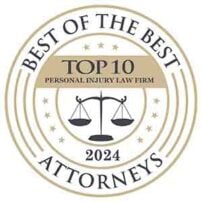Premises Liability Attorney in NYC
If you have been injured on someone else’s property in New York, you may have grounds for a premises liability claim.
What is premises liability? Put simply, it is an area of the law that protects those who may have suffered an injury because of the negligent actions of a property owner.
You may have been hurt while shopping at a grocery store, or staying in a hotel, or visiting an amusement park. If certain requirements are met under New York law, you might be eligible for compensation from the party or parties responsible for your injuries.
Contact a premises liability attorney at The Law Office of Richard M. Kenny to discuss your legal options if you have been injured on somebody else’s property in New York City. You may call us at (212) 421-0300 or fill out the case evaluation form below to schedule a free consultation about your premises liability case.
Elements That Must Be Proven in a Premises Liability Case
Like any other type of personal injury claim, a New York premises liability case must show both negligence and damages.
Negligence is based on the idea that people have a duty to exercise reasonable care in their actions to avoid harming others. If failure to meet this duty (negligence) results in any injury (damages), the wronged party could pursue a claim for compensation.
Various factors may influence the amount of compensation obtained, but in order to qualify for any compensation whatsoever, the plaintiff must prove all three of the following elements:
- A Duty of Care Existed: The owner or possessor of a property owed a duty of care to the plaintiff. If the property owner has a duty of care, it means that he or she must exercise reasonable care to maintain reasonably safe conditions on the premises.
- The Duty of Care Was Breached: The property owner did not exercise such reasonable care and therefore violated or “breached” this duty. For example, a duty of care would be breached if a grocery store owner either knew about a spill and failed to clean it up or failed to regularly monitor the premises and thereby never noticed the spill in the first place.
- The Breach Caused Injury: This breach of the duty of care was the direct cause of the plaintiff’s injury. It is not enough to say that a property owner was negligent and that a plaintiff suffered an injury. These two facts must be tied together so that the injury can be directly linked to the breach.
Proving these elements can be more difficult in a premises liability case than in other situations, such as car accidents, where the causal relationship between a defendant’s actions and a plaintiff’s injuries can be more easily seen.
Fortunately, The Law Office of Richard M. Kenny has decades of experience successfully establishing negligence on the part of property owners to secure compensation for their victims. Schedule a free case evaluation with one of our seasoned New York premises liability lawyers to learn whether you have a sound cause of action for your injuries on someone else’s property.
Understanding a Property Owner’s Duty of Care in New York
You can see how important “duty of care” is in a premises liability case. But what exactly constitutes a property owner’s duty of care in New York City? And to whom is this duty owed?
Generally speaking, a New York property owner’s duty of care extends to individuals who are lawfully visiting the owner’s premises. Lawful visitors fall under one of two categories:
- Invitees: An invitee is someone who is on the premises for commercial or business For example, people who enter department stores to purchase clothes are considered invitees.
- Licensees: A licensee is on the premises for non-commercial or non-business reasons, such as an individual going to someone’s home for a social gathering.
In some circumstances, a property owner may also have a limited duty of care to an unlawful visitor or “trespasser.” The degree of duty owed may depend upon the trespasser’s age:
- Adult Trespassers: For a duty of care to apply to a trespassing adult, the property owner typically needs to know the trespasser is present. In these instances, the owner must warn of any man-made dangers, such as electric fences with potentially lethal voltage.
- Child Trespassers: Minors may demand extra care from owners on whose property they may be trespassing. This is especially true if the property has hazardous features, such as an unfenced pool, that may be tempting to a young child. These are known as “attractive nuisances,” and courts have consistently upheld that property owners must exercise reasonable care either to eliminate these dangers or provide adequate warning about them.
What you were doing on someone else’s property at the time you were injured can impact whether you have a case. A premises liability attorney in our office can evaluate the facts leading up to your injury and advise you of your options under New York law.
Examples of New York Premises Liability Cases
A wide range of situations could form the basis of a premises liability case. In fact, if you were injured on property belonging to someone else in New York City, there is a good chance that you have grounds to pursue a claim. New York premises liability cases often involve:
- Slip-and-Fall Accidents: These are incidents in which slippery floors or walkways cause people to lose traction and fall. Slip-and-fall accidents are closely related to and often discussed interchangeably with “trip-and-fall accidents,” in which unforeseen obstacles cause a loss of footing. Accidental falls are among the most common causes of injury in the United States, particularly among older adults, accounting for about three million emergency room visits per year.
- Inadequate Maintenance: These are cases in which a landowner or possessor causes harm by not exercising reasonable care in maintaining a property, such as when a failure to trim a tree causes a branch to fall on someone.
- Defective Property Conditions: A property owner may be found liable for not fixing dangerous conditions on a premises or warning the public that they exist.
- Inadequate Security: In some cases, landowners or possessors may be in breach of their duty of care to visitors if they fail to provide sufficient security on their property, such as guards or adequate lighting in a commercial parking lot.
These are common examples of premises liability cases, but they are not the only types of compensable accidents on someone else’s property. To see if your case has merit, schedule a free consultation with one of our New York premises liability lawyers.
Property Conditions That Can Be a Sign of Negligence
There are a number of defective conditions on a property that could be a sign of negligence. These conditions may include:
- Slippery or wet floors
- Uneven floors or holes in the ground
- Poorly built or damaged stairs
- Electrical hazards
- Exposure to dangerous chemicals
- Dangerous or uncontrolled animals
- Lack of security or insufficient security
If you have suffered an injury on someone else’s property because of any of these conditions, our firm can help you explore possible legal remedies.
Frequently Asked Questions About Premises Liability
The Law Office of Richard M. Kenny has been educating clients about premises liability law for more than two decades. Some of the questions clients most frequently ask include:
Q: What Constitutes a Valid Premises Liability Claim in New York City?
A: You must demonstrate that the responsible party knew or should have known about an unsafe property condition to have a claim.
Q: Can I File a Slip-and-Fall Claim on Behalf of a Child?
A: If your child is injured on another person’s property, you could potentially seek damages on his or her behalf.
Q: Do I Have a Sidewalk Accident Case?
A: Sidewalk accidents can occur for many different reasons, though they are typically the result of negligence on the part of the landowner or possessor.
Q: What Should I Do If I Am Hurt on My Friend’s Property?
A: If you are injured on your friend’s property, you should do everything you can to document the incident in order to strengthen your case.
Q: Do I Have a Claim If I Have Been Injured in an Elevator Accident?
A: An elevator accident can be compensable when a property owner fails to repair a known mechanical defect.
Q: Who Is Responsible If I Am Injured in My Apartment?
A: Unfortunately, apartment accidents are most often caused by preventable negligence on the side of one party.
Q: What Should I Say to an Insurance Adjuster About a Slip-and-Fall Accident?
A: An insurance company may try to take advantage of your poor choice of words in order to justify a lowball settlement offer.
Q: Should I Avoid Posting on Social Media After a Slip-and-Fall?
A: One of the best things you can do after a slip-and-fall is to refrain from posting on social media until your claim is resolved.
What Our New York Premises Liability Attorneys Can Do for You
It can be difficult to know what to do next if you have been injured on someone else’s property. How will you continue to support yourself and your family in the face of mounting medical bills, especially if your injuries are preventing you from working?
This is where The Law Office of Richard M. Kenny can help. We have represented numerous clients in premises liability cases over the past two decades. Some of our top outcomes include:
- $3 Million for a man who tripped and fell in a parking lot
- $975,000.00 for a woman who slipped and fell on ice
- $775,000.00 for an individual who tripped and fell on broken pavement
Once you retain our firm, our veteran New York premises liability lawyers will immediately launch an investigation to identify the causes of your accident and all the parties who may be at fault.
Premises liability claims are some of the most challenging in personal injury litigation, requiring comprehensive knowledge of the applicable law and building code regulations to demonstrate that a breach of the duty of care inflicted harm. We will gather the evidence needed to support a claim of liability and take legal action to prevent a defendant from destroying this evidence by remedying any defective conditions before they can be documented.
Success or failure hinges upon your ability to assemble a compelling case against all the responsible parties within the time permitted by law, known as the statute of limitations. In most premises liability cases in New York, the statute is three years from the date of injury. There are exceptions, however, particularly when someone is injured on government or municipal property, where the window to take action is far shorter. Failure to file suit or resolve a claim before the statute elapses could forever bar you from getting full compensation, so acting quickly to find quality legal representation can prove invaluable.
Once we have put together the strongest case possible, we will attempt to negotiate a fair settlement with the defendants and their insurance carriers. And unlike many of our competitors, we are not afraid to take your case to court if we do not receive an offer that reflects its true worth. Our firm has fought for clients in hundreds of trials throughout Manhattan, the Bronx, Brooklyn, and Queens.
If you are concerned about taking on additional financial burdens at this time, you should know that it will cost you nothing up front to hire us because we work on a contingency fee basis. Only when our premises liability attorneys resolve your case will our firm take reimbursement for our expenses and a fee for our services, typically as a percentage of your verdict or settlement.
You have enough to worry about right now just trying to recover from your injuries. Let The Law Office of Richard M. Kenny shoulder your legal worries so you can get the compensation you deserve.
What Compensation Is Available in a New York Premises Liability Case?
How much compensation you receive depends upon many factors, including the facts of your accident, the extent of your damages, and the applicable insurance coverage. Nevertheless, a verdict or settlement in your premises liability case may take into account:
- Medical expenses – You could recoup the costs of any hospitalizations, surgeries, prescriptions, therapies, assistive devices, and past, present, and future treatments.
- Lost wages – If your injuries prevented you from working, your lost wages may be considered. You might also be eligible to recover for any diminishment of your long-term earning potential as a result of permanent physical impairment.
- Pain and suffering – Non-economic damages such as physical discomfort, emotional and psychological trauma, and other detriments to your lifestyle may influence the level of compensation.
- Loss of consortium – New York law could permit your spouse to seek damages for deprivation of the benefits of an intimate relationship because of your injuries.
- Punitive damages – When the behavior of a defendant displays “willful or wanton negligence” or a “high degree of moral turpitude,” courts sometimes impose additional economic penalties to discourage similar misconduct from others.
No two premises liability cases are alike, but we will always strive to get you compensated for all of your losses.
Contact a New York Premises Liability Lawyer Today
At The Law Office of Richard M. Kenny, our family is dedicated to fighting for yours. You can trust that you will receive the help you need from our firm.
With over $350 million recovered in verdicts and settlements and more than 100 years of combined experience, we pride ourselves on being aggressive advocates for the injured. The highly accomplished attorneys at our firm have been selected for inclusion in the New York Super Lawyers® list and have earned membership in the Million Dollar Advocates Forum®. For more information, view our case results or contact us for a free consultation with a skilled Manhattan, NY premises liability lawyer today. You may call our office at (212) 421-0300 or fill out the case evaluation form below.



